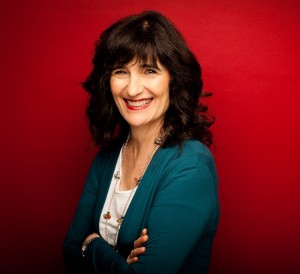The Lilith Blog 1 of 2
July 1, 2014 by Yona Zeldis McDonough
Golden Words: Q&A With Author, Editor, Activist Nora Gold

Nora Gold (source: NoraGold.com)
Nora Gold’s recently published Fields of Exile, a pathbreaking novel about anti-Israelism in academe, was picked by The Forward as one of “The 5 Jewish Books to Read in 2014,” and has received enthusiastic praise from many quarters.
But this is not the first time Gold has received acclaim for her work; Marrow and Other Stories won a Canadian Jewish Book Award, and was praised by Alice Munro. And Gold’s story, Yosepha, appeared in the spring 1985 issue of Lilith.
Gold is also the creator and editor of the online literary journal Jewish Fiction.net, a blogger for “The Jewish Thinker” at Haaretz, and Writer in Residence and an Associate Scholar at the Centre for Women’s Studies in Education at OISE/University of Toronto. She and Lilith’s fiction editor Yona Zeldis McDonough discussed the role ideas play in the creation of a novel, the meaning Zionism continues to have in the Diaspora and the siren song of the short story.
YZM: Fields of Exile has been called “a novel of ideas.” What do you think critics meant by this?
NG: Phyllis Chesler and Thane Rosenbaum called my book “a novel of ideas” because it is full of ideas and is, to some extent, driven by these. But only to some extent. Fields of Exile is not a dry treatise or a polemic. It is a novel, first and foremost. Chesler also wrote that Fields of Exile is so “gripping” that she could not put the book down. Others have said similar things. So I hope the term “novel of ideas” does not deter anyone from reading Fields of Exile.
YZM: Its protagonist, Judith, is torn between life in Israel and life in Canada; can you say more about her struggle?
NG: I don’t exactly see Judith as torn. For her there is no contest. She is a Zionist, so to her it is clear that the only place she will ever find spiritual or personal fulfillment is in Israel. For this reason, she disdains the alternative, which is living permanently in Canada (or, in her terms, in exile). That said, she does recognize the benefits and pleasures available to her in Canada that she doesn’t have in Israel, and she is able to enjoy these, but only as long as she thinks of her life in Canada as temporary.
YZM: Have you ever lived in Israel?
NG: Yes, from 1975-1981. I also spent a sabbatical year there with my family from 1996‐1997. At this point I visit Israel two or three times a year (we have an apartment in Jerusalem). When I’m in Israel, I am involved in feminist activism, as a board member of the Dafna Fund. Started by, and named for, the late Dafna Izraeli, it is the only feminist foundation in Israel, and it does terrific work cultivating and supporting Israeli feminist organizations and their social change initiatives.
YZM: There is strong anti-‐Israel sentiment on many campuses now; did you know you were tapping into the zeitgeist when you wrote this book?
NG: I wasn’t thinking about zeitgeist or anything like that when I wrote this novel. When I write, it is a very internal experience, and I don’t think about any of the externals related to my book (for example, how it might be received or marketed). I just write from within. Once the book is finished, though, that’s another matter. The publisher who published Fields of Exile asked me to draw up a list of all the populations that might be interested in my book, and at that point I realized there were probably quite a few Jews who were as upset as I was about anti-Israelism on campuses, and that my novel might strike a chord with them. But as I was writing Fields of Exile, all I focused on was the writing itself.
YZM: Can you talk about your “other hat”— editor of Jewish Fiction .net? ]
NG: I am both the creator and editor of this online literary journal. I started Jewish Fiction .net four years ago because I was concerned — in light of the crisis in the publishing industry — that a lot of great Jewish fiction might get lost. Since that time, Jewish Fiction .net has published 186 first-‐rate works of fiction (stories or novel excerpts) that were originally written on five continents and in eleven languages. We are proud to have published some of the most celebrated Jewish writers in the world today, as well as many excellent writers who are not yet well known.
Being a feminist, I have a particular interest in Jewish feminist fiction, so I’m delighted that we have been able to publish some marvelous feminist stories. As a matter of principle, we make sure that at least half of every issue is fiction written by women, and in December 2012 we were pleased to publish an all-‐women’s issue. Jewish Fiction .net is free of charge, and we currently have tens of thousands of readers in over 120 countries. We welcome all submissions.
YZM: What are you working on now?
NG: I’m writing stories again and enjoying this very much. My first book was a story collection, Marrow and Other Stories, and since then I’ve written two novels: Fields of Exile and then The Dead Man (currently under review with publishers). Now I feel like I am returning to my roots as a story writer.
 Please wait...
Please wait...
Pingback: Jewish Literary Links for Shabbat | ErikaDreifus.com